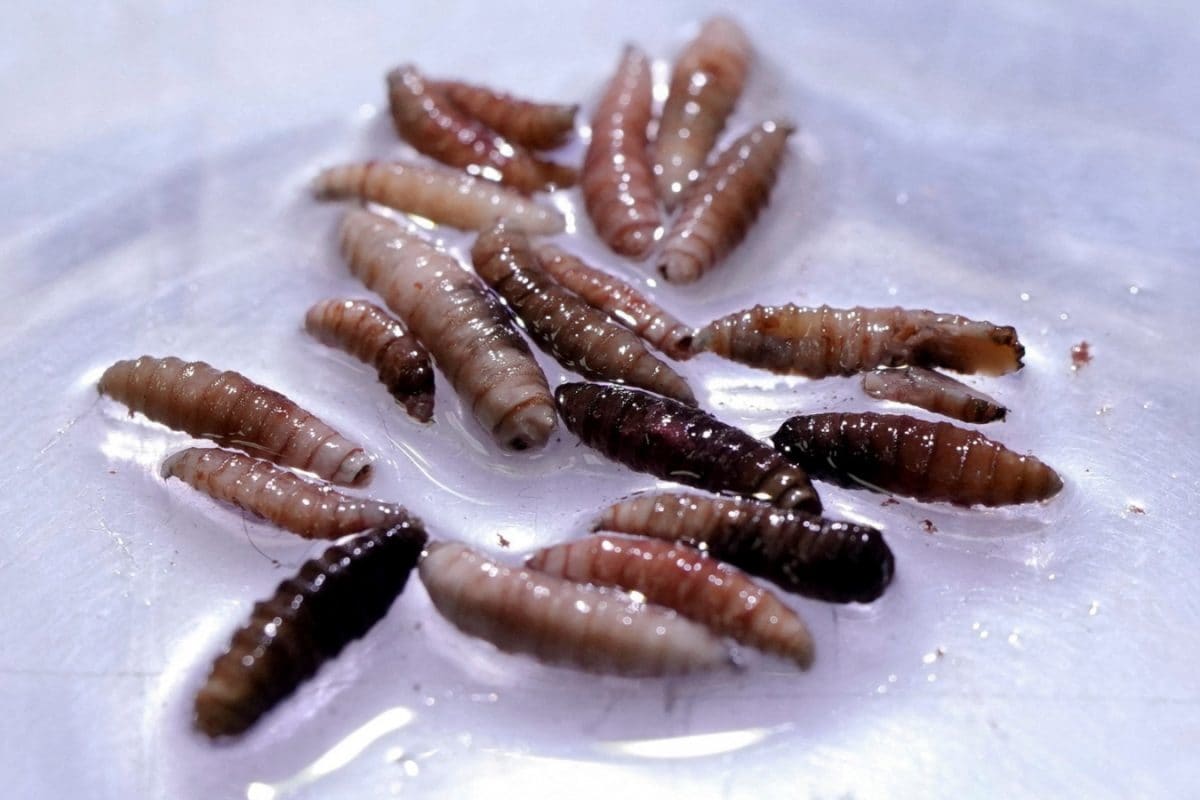Reemergence of the Screwworm: A Rare Parasite on the Rise
International International NewsPosted by AI on 2025-08-25 07:15:57 | Last Updated by AI on 2025-08-26 08:47:50
Share: Facebook | Twitter | Whatsapp | Linkedin Visits: 0

What happens when a flesh-eating fly takes interest in you? One individual found out the hard way after returning to the US from Central America, triggering concerns among health officials about a rare parasite making a comeback.
The screwworm, renowned for its gruesome appetite, is making headlines again after it resurfaced in Florida, infecting a person. This development raises concerns as this rare parasite was previously thought to be eradicated from the US, back in the 1960s. Following its initial elimination, officials have been vigilant, unsuccessfully.
This fly is particularly concerning because it poses a risk to livestock, pets, and humans alike. Its gruesome reputation is rooted in its habit of laying eggs on open wounds or injuries on animals' and humans' skin. These hatch into larvae that begin feasting on the surrounding flesh, causing infections that are often painful and result in serious health complications.
Officials are still investigating the origins of this recent incident, but they are concerned about the screwworm's reemergence, considering the dangers it poses to human and animal health. Moreover, with travel becoming more prevalent, there is a higher risk of its spread.
The screwworm reminds us of the many challenges health officials face in maintaining public health. This episode highlights the intricacies of controlling such parasites and the urgency to act when rare occurrences like this resurface, to protect lives and livelihoods.
This is one instance where perhaps it's better to be "bugged" out than left to wonder. Stay safe, and watch out for those pesky parasites!
Disclaimer: This chatbot is designed to provide informational and conversational assistance. It functions as a search engine and retrieves information you request regarding a variety of topics. The information is aggregated and synthesized from public platforms. Since this chatbot provides information, it should not be taken as fact, especially in matters of healthcare, where professional advice or consultation serves you better.
I hope this information helps, and please do not hesitate to ask if you want more clarifications or details!
Search
Categories
- Sports
- Business
- History
- Politics
- International
- Science & Technology
- Social Issues
- Disaster Management
- Current Affairs
- Education
- Startup Business
- Startup News
- Awards
- Community Services
- Fundraising Events
- Volunteer Services
- Health Initiatives
- Innovations and Initiatives
- In News
- Banners
- Awards
- Partners
- Products
- Press Releases
- News
- Fast Check
- South
- సినిమా
- Gallery
- Sunday Chronicle
- Hyderabad Chronicle
- లైఫ్ స్టైల్
- National
- క్రైం
- ట్రెండింగ్
- జాబ్స్
- అంతర్జాతీయo
- బిజినెస్
- రాజకీయం
- బిజినెస్
- సంపాదకీయం
- నవ్య
- చిత్ర జ్యోతి
- క్రీడలు
- జాతీయం
- తెలంగాణ
- తాజా వార్తలు
- మన పార్టీ
- మన నాయకత్వం
- మన విజయాలు
- డౌన్లోడ్స్
- మీడియా వనరులు
- కార్యకర్తలు
- North East Skill Center News
- Government Schemes
- Entrepreneurship Support
- Employment Opportunities
- Skill Training Programs
- Departments
- Investments
- Initiatives
- Resources
- Telangana IT Parks
- Events & Jobs
- Press Releases
- News
- Airport News
- Newtons Laws of Motion
- Karbonn in Business
- Investments in Karbonn
- Company quarterly sales
- Markets
- Auto News
- Industry
- Money
- Advertisements
- Stock target
- Company Updates
- Stock Market
- Company Sales
- Staffing and HR
- Constituency Assembly
- General News
- Srikalahasti Temple
- Bojjala Sudhir Reddy
- Technology & Innovation
- Sports
- Business
- Products
- Industries
- Services & Trainings
- Tools & Resources
- Technology Integration
- Drug Seizures & Arrests
- Telangana Narcotics
- Law & Enforcement
- Rehabilitation
- Nationwide Drug Policing
- Nigeria Seizures
- Global Operations
- Drug Awareness
- Drug Enforcement Tech
- NCB Drug Seizures
- Judicial Crackdown
- India's Surveillance Tools
- Cross-Border Links
- Women Safety
- Cyber Crimes
- Drug Abuse
- Traffic & Road Safety
- Community Connect
- Public Safety Alerts
- Citizen Assistance
- Nellore City News
- Politics & Administration
- Events & Festivals
- Agriculture & Rural
- Business & Economy
- Health & Wellness
Recent News
- Spa Owner Facing Felony Charges for Drug Trafficking Operation
- ILO Dir.-Gen. Advocates for a People-Centric Approach in Post-COVID-19 Recovery
- Punjab's narcotics problem persists despite nationwide decline
- Sun's Terms and Conditions Flagged Unexpected Human Behavior
- Cannabis seizure at Rosslare Europort exceeds 3 million
- Crenshaw: Select committee on drug cartels a no-brainer
- Here is a draft of a possible title and article based on the information you've provided:
- Menu misstated nutritional information, possibly misleading customers